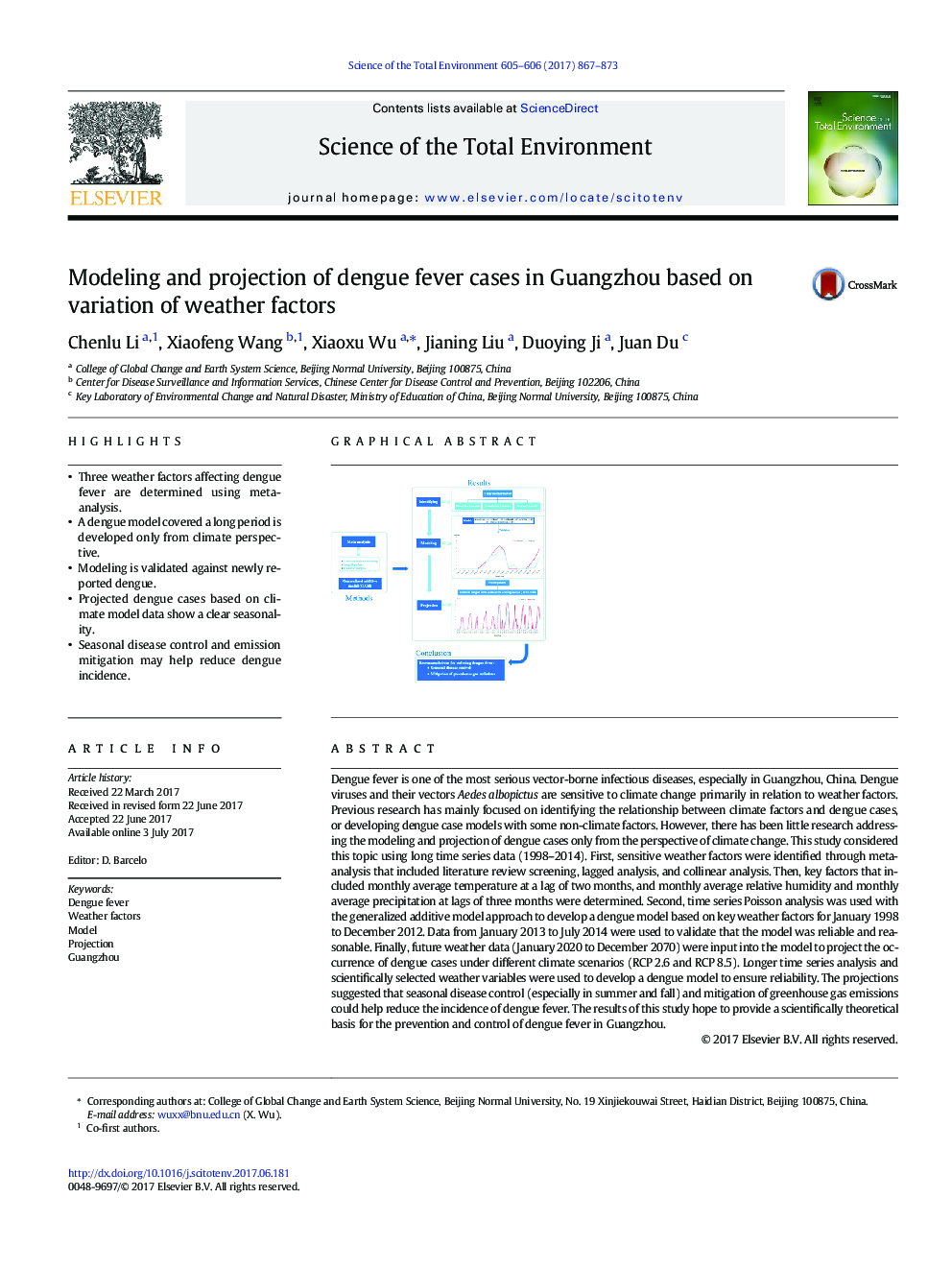| Article ID | Journal | Published Year | Pages | File Type |
|---|---|---|---|---|
| 5750656 | Science of The Total Environment | 2017 | 7 Pages |
â¢Three weather factors affecting dengue fever are determined using meta-analysis.â¢A dengue model covered a long period is developed only from climate perspective.â¢Modeling is validated against newly reported dengue.â¢Projected dengue cases based on climate model data show a clear seasonality.â¢Seasonal disease control and emission mitigation may help reduce dengue incidence.
Dengue fever is one of the most serious vector-borne infectious diseases, especially in Guangzhou, China. Dengue viruses and their vectors Aedes albopictus are sensitive to climate change primarily in relation to weather factors. Previous research has mainly focused on identifying the relationship between climate factors and dengue cases, or developing dengue case models with some non-climate factors. However, there has been little research addressing the modeling and projection of dengue cases only from the perspective of climate change. This study considered this topic using long time series data (1998-2014). First, sensitive weather factors were identified through meta-analysis that included literature review screening, lagged analysis, and collinear analysis. Then, key factors that included monthly average temperature at a lag of two months, and monthly average relative humidity and monthly average precipitation at lags of three months were determined. Second, time series Poisson analysis was used with the generalized additive model approach to develop a dengue model based on key weather factors for January 1998 to December 2012. Data from January 2013 to July 2014 were used to validate that the model was reliable and reasonable. Finally, future weather data (January 2020 to December 2070) were input into the model to project the occurrence of dengue cases under different climate scenarios (RCP 2.6 and RCP 8.5). Longer time series analysis and scientifically selected weather variables were used to develop a dengue model to ensure reliability. The projections suggested that seasonal disease control (especially in summer and fall) and mitigation of greenhouse gas emissions could help reduce the incidence of dengue fever. The results of this study hope to provide a scientifically theoretical basis for the prevention and control of dengue fever in Guangzhou.
Graphical abstractDownload high-res image (126KB)Download full-size image
